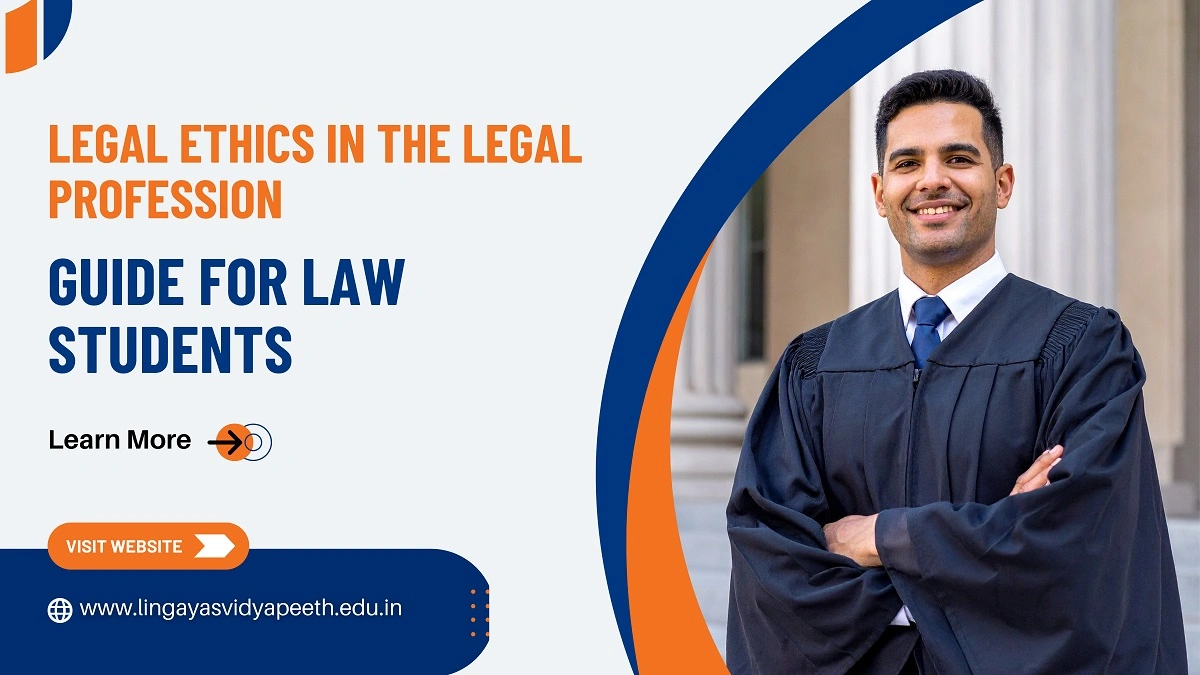Home » Legal Ethics in the Legal Profession – Guide for Law Students

In the realm of law, where justice and fairness are paramount, legal ethics serve as the cornerstone of professional integrity. Lawyers and legal practitioners are not only expected to be skilled and knowledgeable but also ethically sound. Their actions must reflect a strong commitment to justice, confidentiality, and client welfare while upholding the integrity of the judiciary and society at large.
Ethical considerations in legal practice are not merely aspirational; they are enforceable standards designed to maintain public trust in the legal system.
Professionalism is a fundamental aspect of legal ethics and professional responsibility. It requires lawyers to act with diligence, civility, and respect for the legal system. Legal professionals must serve their clients’ best interests while following the rules and norms of the profession.
Professionalism also involves treating all parties with fairness, honesty, and courtesy, thereby fostering trust and cooperation in legal practice.
The legal profession plays a crucial role in society by ensuring justice, protecting rights, and maintaining the rule of law. At the heart of this mission lie the principles of legal ethics, which act as a moral compass for lawyers.
These principles are codified in documents such as:
The Bar Council of India’s Rules
The ABA Model Rules of Professional Conduct (U.S.)
Other national codes across global jurisdictions
Professional responsibility forms the foundation of the legal profession.
It emphasizes accountability and consistent adherence to ethical standards.
Lawyers owe a fiduciary duty to their clients, protecting rights and interests.
Legal professionals safeguard the rule of law and access to justice.
Ethical responsibility ensures lawyers act as advocates, counselors, and officers of the court.
Confidentiality is the bedrock of the attorney-client relationship. Lawyers must protect all client information, both during and after their professional relationship. This principle builds trust and ensures the legal system functions effectively.
Competence requires legal professionals to possess the expertise, legal knowledge, and research skills necessary to represent clients effectively. Diligence means applying this knowledge carefully, ensuring accurate legal analysis, clear arguments, and strong case representation.
Integrity demands honesty, transparency, and fairness in all dealings with clients, adversaries, the judiciary, and the public. It safeguards the credibility of the legal profession and ensures long-term trust.
Lawyers have a duty to support the court in upholding justice. This includes presenting truthful information, respecting court procedures, and avoiding any action that undermines the administration of justice.
A lawyer must remain loyal to their client and avoid conflicts of interest. Personal interests or competing client duties should never compromise objectivity. Transparency and disclosure are essential for maintaining trust in the attorney-client relationship.
Also Read
Top Law courses after 12th
Difference between advocate and lawyer
Best career options after Law
Online Gaming Bill 2025: Know About India’s New Gaming Law
From
Ms. Mohini Taneja
Assistant Professor
School of Law
RECENT POSTS
CATEGORIES
TAGS
Agriculture Agriculture future AI Architecture artificial intelligence Bachelor of Commerce BA English BA Psychology BTech AIML BTech CSE BTech cybersecurity BTech Engineering Business management career Career-Specific Education career guide career option career scope Civil engineering commerce and management Computer Science Computer science engineering Data science degree education Engineering Engineering students English Literature english program Fashion Design Fashion design course Higher Education Journalism journalism and mass communication law Law career Machine Learning mathematics MBA MBA specialization Mechanical Engineering Pharmacy Psychology Research and Development students
LV only conducts physical/online verification of any document related to examination on the following email id:
It is important to note that the following email IDs and domains are fraudulent and do not belong to our university.